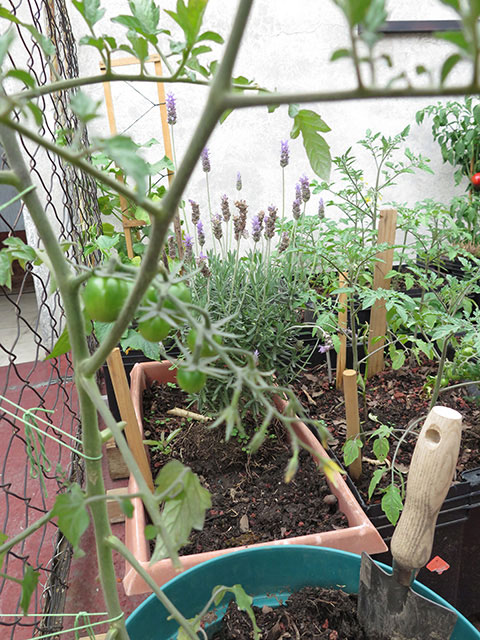New restrictions imposed due to rising infection rates in Brazil meant the two could not work together in Manu’s restaurant or visit the urban garden project where most of the ingredient served at the chef’s Curitiba eatery are grown. Thinking on their feet, they decided, with support from Goethe–Institut Sao Paulo, to transform their work-stay into a participatory digital experience designed to convey the ideas at the core of Andrea’s Forecast project, titled Whatever That Ground May Be.
The events, co-hosted by Forecast and Goethe–Institut São Paulo, were moderated by Ingrid Cuentas, a Colombian artist based in São Paulo. Here, journalist Fernanda Danelon, who participated in the sessions on March 24, 26, and 27, shares her impressions of the online cooking experience.
By Fernanda Danelon
Venezuelan artist Andrea Nones-Kobiakov and Brazilian chef Manu Buffara invited participants in the three digital sessions to rethink the kitchen as a meeting place, while highlighting the cultural, political, and caring aspects inherent to the act of cooking. Andrea, who is currently living and working in Mexico while completing a Ph.D. in Arts, sees the kitchen as a place of artistic expression; a sensorial as well as aesthetic experience. As her work at Forecast deals with memories linked to flavors, she brought different traditional and family recipes to each session, meticulously sharing each component so that her cooking partner Manu and the audience could join her in creating and recreating new culinary experiences. While preparing the dishes, the chef and the artist discussed the "comeback" home cooking is making these days (even before the pandemic, albeit accelerated by it), and dug deeper into how the ways we feed ourselves can change the world.
Cooking as an act of love
On the first day, Andrea baked bell peppers, reinterpreting an old family recipe that was meaningful for her mother and herself. While preparing the dish, the artist recalled heartfelt memories from her childhood, such as coming home after school and finding her mom making her favorite dish. “These memories bring an intuitive knowledge,” Andrea says. “When you cook a family recipe, to get to the true flavor of your memory, you use that intuition.”
The emotional memories brought about by food are also extremely present in the work of the award-winning chef Manu Buffara, whose restaurant Manu follows a dedicated farm-to-table approach and works closely with local producers. "We all have some kind of affective memory with food that can make anyone feel comforted and welcome," says Buffara, who enjoys using cuisine as an instrument to connect with others.



